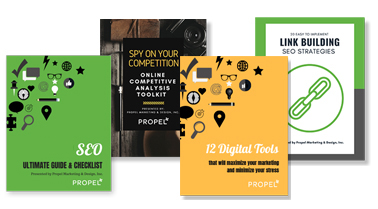Millennials are the dominant generation in America. They’re diverse, they’re everywhere — and you need to sell to them.
The problem is that millennials are also a bit, shall we say, fussy. Research has shown that millennials don’t like being sold to, which kind of makes things a bit tricky when they probably make up the core of your demographic.
However, there’s plenty of hope. Millennials have grown up in the digital era with all of its trappings — including online shopping. If you get things right, you can totally sell to millennials.
Let’s take a look at how to get them to buy from you on social media.
-
Sell the right things
The first thing to be wary of is that millennials as a whole are a bit strapped for cash. Sectors like the insurance industry are having a rough time because millennials are struggling to land jobs or rent flats. As such, taking out insurance is the last thing on their minds.
Airbnb founder Brian Chesky — a millennial himself — knows that millennials are very different to the generations that came before them. Their needs and wants are different; they’ve been shaped by Instagram and suchlike, and they don’t need to spend big to have a good time.
“Access is becoming the new ownership … Our bling isn’t our house or our car, it’s the theatre of Instagram and the experiences we are having in the world.”
This doesn’t mean that there’s nothing at all that millennials will buy. It just means that you’ve got to be very careful about what you choose to sell to them.
What to sell to them? Bustle published a genius list that highlights 22 products that were mega popular with millennials in 2017, while one of the best things to do is to research forums, groups, and Reddit threads related to various niches to find out what’s hot right now.
Price is key. Millennials aren’t totally averse to premium products, but they are averse to premium prices. Discount chains are doing well, while traditional luxury stores are dropping off.
Remember also, don’t sell things just because you like them — sell things even if they aren’t to your personal taste.
Want an even better way of learning more about your millennial customers so that you can give them what they want? Implement Artificial Intelligence (chatbots, automated email marketing strategies) and use analytics to track your customers’ browsing and purchasing habits so that you can start matching them with the right products.
-
Provide an omnichannel shopping experience
Studies have shown that over 50% of millennials prefer shopping online than in a physical store. One of the reasons for this? It’s easy.
And one of the reasons it’s so easy is because more and more online stores are providing an omnichannel shopping experience for the omnichannel shopper.
What’s an omnichannel shopper? An omnichannel shopper is a millennial who enjoys researching products online, but who wants to be able to test and buy in-store, too. They want the freedom to switch devices whenever they want as they go from A to B in the buying journey and they want the right data to be available across all devices.
For you as the retailer, providing an omnichannel shopping experience means bringing together your offline and online operations so that they’re basically a single, unified operation. A millennial shopper can browse your products online on any device they want, before ordering and picking up in store with zero hassle.
And because you’ll be using their data across all your channels, you can retarget them in the future with products they’ll actually like (retargeting millennials with products they have no interest in is a major turn-off).
Another reason to provide an omnichannel shopping experience is to prevent abandoned carts. Over 50% of shoppers dump items in their shopping carts — and then forget about them. With your omnichannel sales strategy, you can remind your millennial shopper on any device that — Hey! You’ve still got stuff saved for later in your cart. Want to finish shopping or add more stuff?
For both you and the customer it’s win-win, and conversions could soar.
-
Provide online reviews
I was having a chat recently with a budding entrepreneur friend of mine who’s selling t-shirts. He’s not doing too well at the moment, so I took a look at his website and products.
The most glaring omission from his landing page was any online reviews.
There were none. Not even one.
Over 50% of millennials prefer to buy online, but there’s more than one reason for this. A study has shown that 45% of them carry out their research online because it allows them to compare prices, products — and reviews.
Online reviews are so important to your customers. As many as 90% say that online reviews have a major impact on their subsequent buying decisions.
People trust reviews, and trust is key if you’re to sell to millennials. They won’t buy from you until they trust you and your product, and one of the easiest ways to build trust is to display social proof in the form of online reviews. These can go on your landing page, and they say to people “Hey, I bought from this person. I loved it and so will you!”
Millennials buy products that are very highly backed by consumer reviews, something which Amazon knows only too well.
-
Provide a proper marketing experience
Earlier, I said that millennials don’t like to be sold to. That they don’t. But what they do like is to be marketed to.
Millennials will share content, but first of all the content has to mean something to them, and they have to be able to relate to it. This means that you need to understand your audience inside out, and it also means that you must put into action a proper content marketing strategy.
Exploit social media; use it to engage with your customers and promote your brand. Give them the whole experience — immerse them in your brand. Give them high value, quality content that reflects who they are — their values and what makes them tick.
Creating shareable content that speaks to millennials is key here. Without a marketing campaign to frame your product, your product won’t speak to your customers. Show them how your product ties into their lives; tell stories that engage. Put marketing and not your products at the heart of things. Speak to people.
All in all, millennials — despite their reputation for having no money and being very fussy buyers — will buy from you. You just need to know what they want, you need to make their life easy, and you need to market to them.
About the author:
Kas Szatylowicz is a social media manager and outreach coordinator at Nightwatch — a search visibility tool of the next generation. Check out Nightwatch blog and connect with her on LinkedIn or Twitter: @KasSzatylowicz






